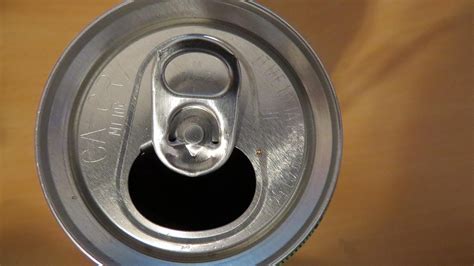How can men optimize natural testosterone for peak energy & muscle gains?

Unlocking Your Natural Testosterone Potential
Testosterone, often hailed as the cornerstone of male vitality, plays a pivotal role far beyond just muscle mass and sex drive. Optimal levels are crucial for maintaining energy, cognitive function, bone density, mood stability, and overall well-being. As men age, or due to various lifestyle factors, testosterone levels can naturally decline, leading to symptoms like fatigue, reduced libido, difficulty building muscle, and increased body fat. The good news is that many natural strategies can significantly help optimize your body’s own testosterone production. This article will delve into actionable steps you can take to naturally boost your testosterone for peak energy and impressive muscle gains.

The Foundational Pillars: Diet & Nutrition
What you eat directly impacts your hormonal balance. To support healthy testosterone levels, focus on a diet rich in whole, unprocessed foods.
- Healthy Fats: Don’t fear fats! Monounsaturated and saturated fats are precursors to cholesterol, which is essential for testosterone synthesis. Incorporate avocados, nuts, seeds, olive oil, and grass-fed butter.
- Adequate Protein: Protein is vital for muscle repair and growth, indirectly supporting a hormonal environment conducive to testosterone. Aim for high-quality sources like lean meats, poultry, fish, eggs, and legumes.
- Complex Carbohydrates: While some low-carb diets are popular, severely restricting carbs can stress the body and lower testosterone. Focus on complex carbs from whole grains, fruits, and vegetables to fuel workouts and maintain energy.
- Micronutrient Powerhouses: Ensure sufficient intake of Vitamin D (sunlight, fatty fish), Zinc (oysters, red meat, pumpkin seeds), and Magnesium (leafy greens, nuts, dark chocolate). These are critical cofactors in testosterone production.
- Limit Processed Foods & Sugar: These can lead to insulin resistance and inflammation, both detrimental to hormonal health.

Strategic Exercise & Training
Exercise is a powerful natural testosterone booster, but the type and intensity matter.
- Resistance Training: Heavy, compound lifts (squats, deadlifts, bench presses, rows) are king. These exercises engage large muscle groups, triggering a significant anabolic response. Aim for 3-4 sessions per week, focusing on progressive overload.
- High-Intensity Interval Training (HIIT): Short bursts of intense exercise followed by brief recovery periods can also stimulate testosterone and growth hormone. Integrate 1-2 HIIT sessions weekly.
- Avoid Overtraining: While intense exercise is good, chronic excessive training can elevate cortisol (stress hormone) and suppress testosterone. Listen to your body and incorporate rest days.
The Crucial Role of Sleep & Stress Management
Prioritizing Quality Sleep
Sleep deprivation is a direct pathway to lower testosterone. Most testosterone production occurs during deep sleep cycles. Aim for 7-9 hours of high-quality, uninterrupted sleep per night. Create a consistent sleep schedule, optimize your bedroom environment (dark, cool, quiet), and avoid screens before bed.
Mastering Stress
Chronic stress elevates cortisol, which has an inverse relationship with testosterone. When cortisol is high, testosterone tends to be low. Incorporate stress-reducing practices into your daily routine:
- Meditation and mindfulness
- Deep breathing exercises
- Spending time in nature
- Hobbies and social connections
- Limiting exposure to stressors when possible

Smart Lifestyle Choices
Beyond diet, exercise, and sleep, other lifestyle factors can significantly impact your hormonal profile.
- Limit Alcohol Consumption: Excessive alcohol intake can disrupt the endocrine system and directly impair testosterone production. Moderate consumption is key.
- Quit Smoking: Smoking is detrimental to overall health and has been linked to lower testosterone levels.
- Avoid Endocrine Disruptors: Be mindful of plastics (BPA, phthalates), pesticides, and certain chemicals in personal care products that can mimic estrogen and interfere with hormone balance.
- Maintain a Healthy Weight: Obesity, especially excess belly fat, leads to higher estrogen levels and lower testosterone. Losing weight can significantly improve your hormonal profile.
Consider Natural Supplements (with caution)
While a solid foundation of diet, exercise, and lifestyle is paramount, certain natural supplements can offer additional support. Always consult a healthcare professional before starting any new supplement regimen.
- Vitamin D: If your levels are low, supplementation can be beneficial.
- Zinc & Magnesium: Often deficient, especially in active individuals, these minerals are crucial for testosterone synthesis.
- Ashwagandha: An adaptogenic herb shown in some studies to reduce stress (cortisol) and improve testosterone levels.
- Fenugreek: Some research suggests it may help increase free and total testosterone.

Integrating Strategies for Peak Performance
Optimizing natural testosterone isn’t about one single hack; it’s about a holistic approach. Each pillar—nutrition, exercise, sleep, stress management, and smart lifestyle choices—reinforces the others. Consistent application of these strategies will create an environment in your body conducive to robust testosterone production, leading to enhanced energy, improved mood, greater strength, and accelerated muscle gains.

Conclusion
Taking control of your natural testosterone levels is one of the most powerful steps men can take towards achieving peak physical and mental performance. By committing to a nutrient-dense diet, a smart training regimen, prioritizing restorative sleep, managing stress effectively, and making conscious lifestyle choices, you can unlock your full potential. Remember, consistency is key, and while these strategies are natural, individual results may vary. If you suspect significantly low testosterone, always consult a doctor for diagnosis and personalized advice.









